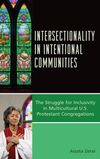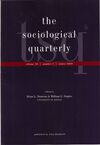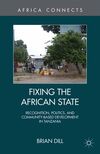by Asef Bayat
“What would Gramsci think of our current predicaments?” wondered the young leftist mayor of the Italian city of Cagliari, Massimo Zedda. “He would probably think that things have improved, but we also have many problems in Sardinia … That’s why we need to organize.” With this proclamation, the blue-jeaned mayor declared 2017 the “Year of Gramsci,” and opened the conference “A...
- by Assata Zerai Over a decade of qualitative research, Assata Zerai has observed both incremental moves toward inclusiveness and strategies employed to accomplish long-term changes while conducting case studies of five multicultural Protestant churches in sites across the United States. With an interpretive approach, she explores these centers of worship and theorizes the conditions under which...
- by Kevin T. Leicht 2016. The Sociological Quarterly 57(2): 211-231 Sociologists have spent a great deal of energy studying social inequality, but in this presentation I suggest that we need to refocus our efforts a bit. I examine four popular myths among the general public, and among some in sociology, regarding the drivers of extreme inequality: (1) that most inequality is generated by race...
- by Zsuzsa Gille In this original and provocative study, Zsuzsa Gille examines three scandals that have shaken Hungary since it joined the European Union: the 2004 ban on paprika due to contamination, the 2008 boycott of Hungarian foie gras by Austrian animal rights activists, and the "red mud" spill of 2010, Hungary’s worst environmental disaster. In each case, Gille analyzes how practices of...
- by Asef Bayat ISA The Futures We Want: Global Sociology and the Struggles for a Better World Anecdotal stereotyping of ‘other’ peoples and cultures is neither new nor of course limited to the West. But things become more serious when stereotypical imaginations get articulated by systematic, ‘scientific’, and authoritative apparatuses of knowledge production. Orientalism, articulated by Edward...
- by Brian Dill Community-based development' (CBD) or'community-driven development' (CDD) has been the predominant approach to international development in recent years. Drawing on fieldwork and first-hand experience, this book explains why CBD/CDD produces outcomes that are incompatible with its underlying assumptions and intended objectives....





